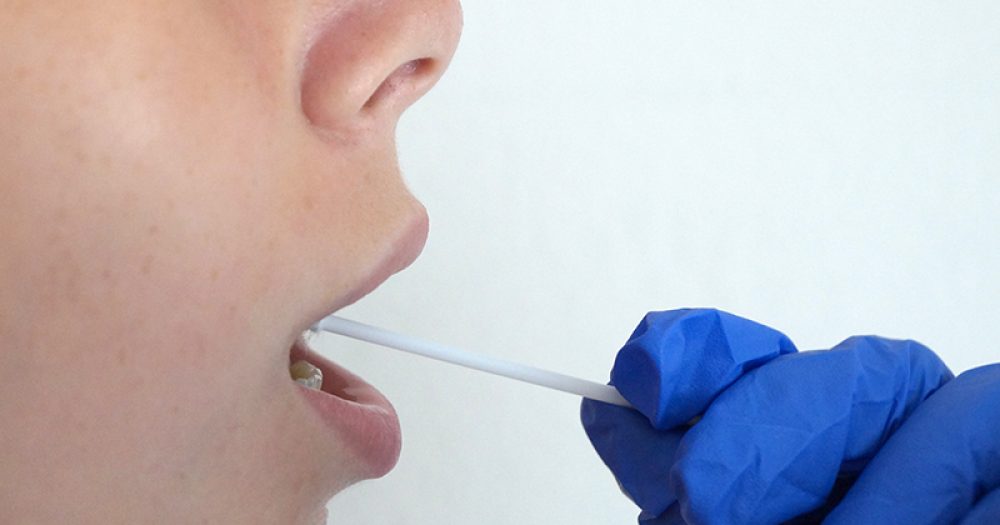Daily contact testing of pupils who have been in close contact with a positive Covid case is a “safe alternative” to home isolation, a new study has found.
However, the study had “several limitations”, and it was “likely” that data capture was “imperfect”.
Researchers from the University of Oxford have today released findings from large study which allowed close contacts of positive Covid cases to stay in the classroom if they tested negative during daily rapid tests.
In total, 201 secondary schools and colleges took part in the trial, with more than 200,000 pupils and 20,000 staff participating.
Around half of the participating schools, 99, acted as a control group and sent contacts home to self-isolate in line with guidance at the time, while the others tested contacts daily, though they were also told to self-isolate after school and on non-testing days.
Both groups were then also invited to provide two “research PCR” tests following contact to “determine how many close contacts became infected”.
Researchers this week released a pre-print of the study, along with an accompanying qualitative report. The study was sponsored by the Department of Health and Social Care and supported by the Department for Education and Office for National Statistics. It ran between April and June.
These are the key findings.
1. Daily testing a ‘safe alternative’ to self-isolation…
According to the research PCRs conducted as part of the study, 1.5 per cent of contacts attending school tested positive or “indeterminate” for Covid-19, compared to 1.6 per cent of those staying at home.
Researchers said this meant daily contact testing was a “safe alternative to home isolation following school-based exposures”.
The report said daily contact testing “should be considered an alternative to routine isolation of close contacts following school-based exposures”.
2. …but study did not ‘demonstrate superiority of the intervention’
The study found no evidence switching from self-isolation to daily contact testing increased rates of symptomatic Covid in students and staff.
However it also “did not clearly demonstrate superiority of the intervention in terms of avoiding student and staff absences from school related to Covid”.
Researchers said the trial was “relatively underpowered given the large extent of variation in absence rates over time and between schools”.
3. Testing can reduce absences by 39%
Where school-based contacts took part in daily contact testing, the “best estimate was that this can reduce COVID-related school absences by 39 per cent”.
In the intervention arm of the study, Covid-related absences were recorded at 0.8 percent.
In contrast the control arm recorded Covid related absences of 1.8 per cent.
The study states this equated to a 39 per cent relative and 0.7 per cent absolute reduction in school days missed due to Covid.
4. Researchers admit ‘several limitations’
However, the study acknowledged it had “several limitations”.
Schools “were not always able to participate due to competing pressures”, and it was “likely as a result that data capture was imperfect”.
For example, it was possible that “not all” PCR-positive cases were reported to schools, and “not all contacts may have been documented for all index cases”.
However, “how the primary outcome measures are assessed is robust to this”.
The qualitative report said some schools found it difficult to implement testing due to limited space and staff capacity.
The trial was also conducted between April and June 2021, when Covid incidents were “low to moderate”.
But as infections rose during the final two weeks of the study, the daily testing protocol became “unwieldy for some schools, given the space and staff required to perform testing”.
Schools Week previously revealed participants of the trial had warned schools would face logistical challenges if confronted with higher numbers of positive cases.
5. Lateral flow tests detected just half of cases
Across the study, 4,757 contacts completed at least one lateral-flow test using Orient Gene brand devices during daily contact testing, generating 20,289 results.
For 3,226 contacts, a paired PCR test was available from the same day or up to two days later for those testing positive.
Of those, 3,116 tested negative and 60 tested positive. Of the 60 who tested positive with a PCR test, 32 had tested positive with a lateral-flow test, while 28 had tested negative.
This means the Orient Gene’s sensitivity – accuracy in identifying positive cases – was just 53 per cent in this study.

Prior to the study, experts raised concerns about the use of Orient Gene lateral flow tests being used due to the lack of data on their effectiveness.
It has since been rolled out to be used in schools as an alternative to the Innova LFTs – which the government said recorded an overall sensitivity of 76.8 per cent.
6. Study a ‘major breakthrough’, says NHS boss
Susan Hopkins, chief medical adviser for NHS Test and Trace, called the study a “major breakthrough, showing that daily contact testing can keep young people in classrooms instead of making them isolate at home”.
“So far, self-isolation has been one of the most effective tools at our disposal against Covid-19 – stopping isolated cases from becoming major outbreaks. To have another potential tool like this is great news.”















Your thoughts